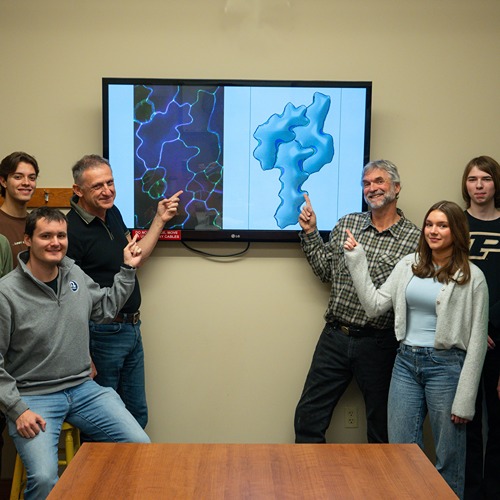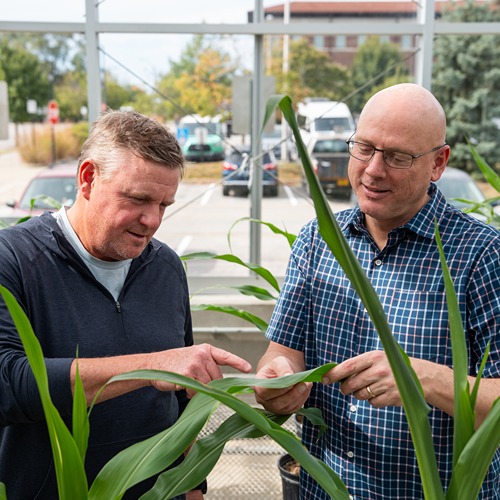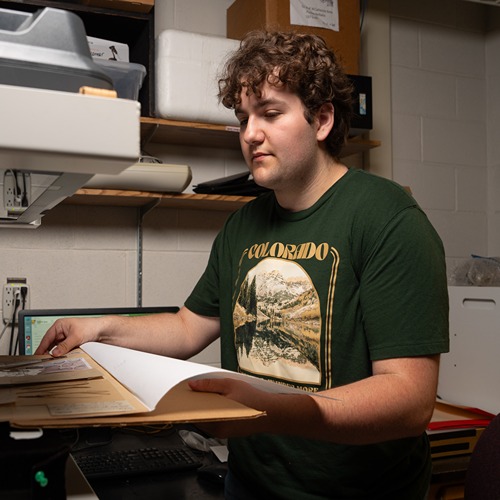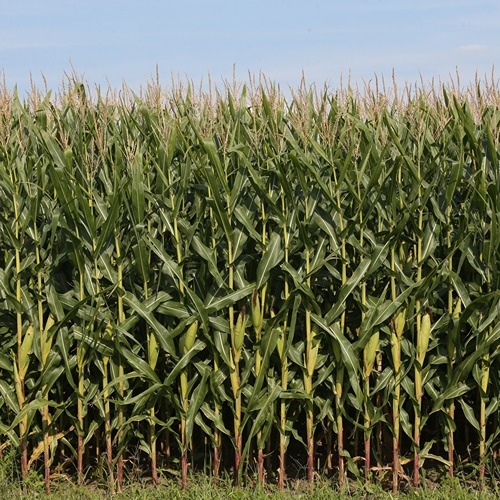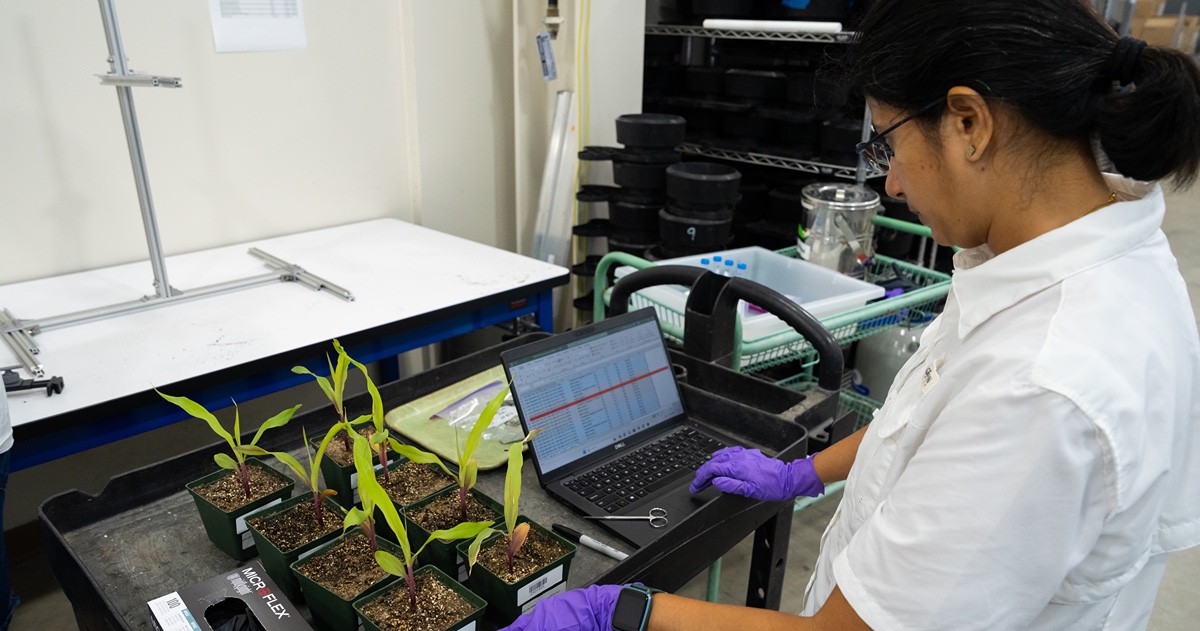Seed grants advance basic plant biology
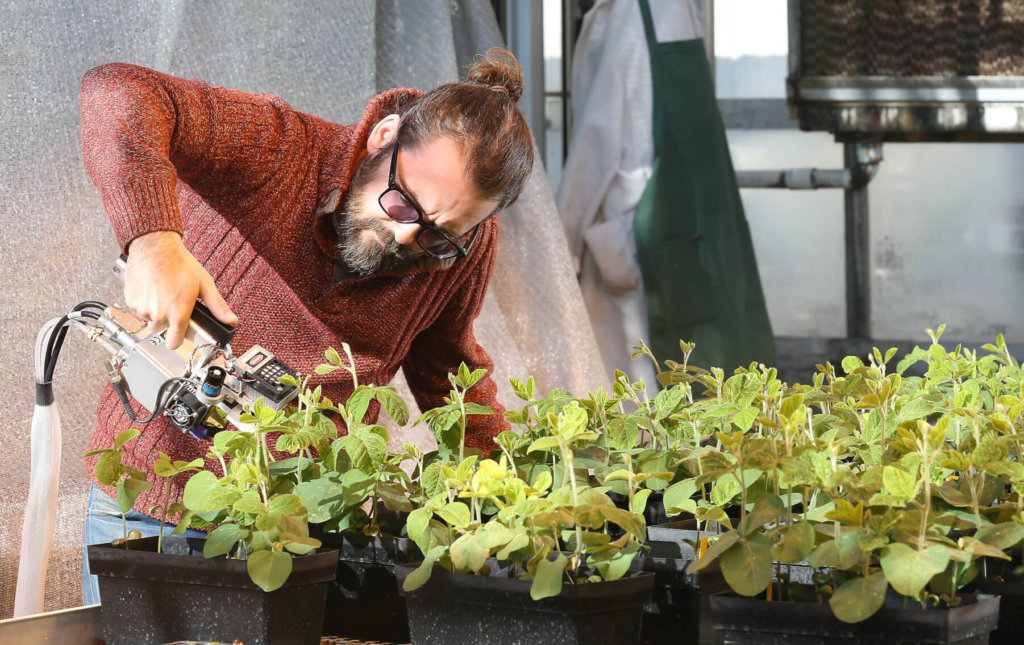
An innovative seed grant program in its second year is meeting its goal of encouraging collaboration among researchers. Purdue Center for Plant Biology faculty have selected five teams to receive approximately $50,000 each for varied projects aimed at advancing basic plant biology. The award recipients are:
- Gyeong Mee Yoon, assistant professor of botany and plant pathology and Dan Szymanski, professor of agronomy – Discovering cellular targets of ethylene-mediated growth inhibition using proteomic profiling
- Xing Liu, assistant professor of biochemistry and Clint Chapple, distinguished professor of biochemistry and director of the Center for Plant Biology – Regulation of Ubiquitin E3 Ligases by Dynamic Exchanges
- Joe Ogas, associate professor of biochemistry and Clint Chapple – Determining the contribution of the Mediator complex to the repressive chromatin modification H3K27me3 in Arabidopsis
- Chunhua Zhang, assistant professor of botany and plant pathology and Brian Dilkes, associate professor of biochemistry – Understand plant exocytosis regulation using chemical genetics
- Leonor Boavida, assistant professor of botany and plant pathology and Damon Lisch, associate professor of botany and plant pathology – Understanding cell identity, differentiation and signaling in the maize male gametophyte using single-cell RNAseq profiling
Rather than targeting short-term application, these projects focus on basic research that provides the fundamental knowledge necessary for future application, says CPB Director Clint Chapple.
Collaboration is a hallmark of the seed grant program. Prior to the inaugural grants last year, the Institute for Plant Sciences, which funded the CPB, had brought in “a large cadre of new faculty. We thought it would be helpful to have collaborations built between those new faculty and senior faculty,” Chapple explains. “The researchers learn about each other’s work, and the junior faculty gain an opportunity to diversify their research portfolio.”
Gordon McNickle, assistant professor of botany and plant pathology, was among last year’s seed grant recipients. “Our proposal was highly collaborative and included four PIs from three departments: John Couture (ENT/FNR) studies plant-insect chemical interactions; Anjali Iyer-Pascuzzi (BTNY) studies root disease resistance; Michael Mickelbart (BTNY) studies plant water use and photosynthesis; and I am a community ecologist,” he says. “This kind of diverse team opens doors to measurements none of us could do without the team, and sparks conversations that lead to true discovery and innovation. It’s really exciting.”
The program’s other purpose is to drive research forward. The seed grants have proven popular in this regard, for obvious reasons: “Funding is always at a premium, and we all have many more ideas than we can follow up on individually,” Chapple says. “But an individual might feel like working together with someone else makes pursuing a new idea a lot more doable.”
The grants are intended to enable researchers to identify core experiments that add to their data in the short term and improve their position to secure federal grants.
“The university has invested a great deal in this plant sciences initiative and hopes it will pay benefits — that we’ll be productive doing more of the research that Purdue is famous for and bring in additional federal or even private dollars that keeps the research going,” he explains.
“Like anything, science costs money,” McNickle says. “Grants like the CPB seed grant essentially allow science to be possible. In particular, the CPB seed grant allowed us to examine 40 different genotypes of soybean and measure more than 20 different traits related to yield and performance of this important crop.”
The program also helps to build community and improve everyone’s grantsmanship, as proposals are distributed among CPB faculty, who are expected to give substantial feedback on three of them as part of the review and evaluation process.
Successful applicants present during the CPB’s brown bag seminar series, gaining even more feedback and informing the larger group of their research interests. These presentations are well attended, Chapple says: “Whenever there’s an opportunity to just get together and talk about science, everybody thinks that’s great.”

